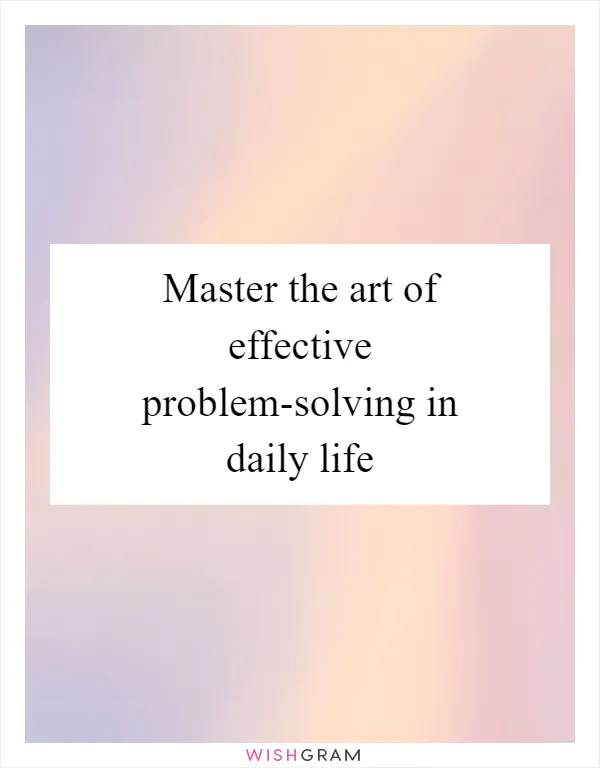Master the art of effective problem-solving in daily life
Mastering the art of effective problem-solving is a crucial skill in our daily lives. Whether it's dealing with personal challenges, professional obstacles, or even minor inconveniences, the ability to approach problems with a clear and strategic mindset can greatly enhance our self-improvement journey. By honing this skill, we can navigate through life's complexities more efficiently, leading to personal growth and a greater sense of fulfillment.
One key aspect of effective problem-solving is developing a proactive mindset. Instead of passively accepting problems as they arise, we should actively seek solutions. This involves cultivating a sense of curiosity and a willingness to explore different perspectives. By adopting this mindset, we can view problems as opportunities for growth rather than burdens to be avoided. Embracing challenges with an open mind allows us to develop creative solutions and expand our problem-solving abilities.
Another crucial element of effective problem-solving is developing strong analytical skills. This involves breaking down complex problems into smaller, more manageable components. By dissecting the issue at hand, we can identify the root causes and underlying factors that contribute to the problem. This analytical approach enables us to develop targeted strategies and solutions, rather than relying on guesswork or trial and error.
Furthermore, effective problem-solving requires effective communication. Being able to articulate our thoughts and concerns clearly and concisely is essential when seeking assistance or collaborating with others. By expressing ourselves effectively, we can ensure that our needs and expectations are understood, fostering a more productive problem-solving process. Additionally, active listening skills are equally important, as they allow us to understand different perspectives and gather valuable insights from others.
In the realm of self-improvement, it is crucial to develop resilience and adaptability. Problems are inevitable, and setbacks are a natural part of life. However, by cultivating resilience, we can bounce back from challenges and setbacks with renewed determination. Embracing a growth mindset allows us to view failures as learning opportunities, enabling us to refine our problem-solving skills and continuously improve.
Moreover, effective problem-solving often requires a systematic approach. By implementing a structured problem-solving framework, such as the well-known "PDCA" (Plan, Do, Check, Act) cycle, we can ensure that our efforts are focused and efficient. This systematic approach helps us avoid impulsive decision-making and encourages us to evaluate the effectiveness of our solutions, making adjustments as necessary.
Lastly, it is important to remember that effective problem-solving is not solely about finding solutions. It also involves self-reflection and self-awareness. Taking the time to understand our own strengths, weaknesses, and biases allows us to approach problems with a clearer perspective. By acknowledging our limitations, we can seek assistance when needed and collaborate with others to find the most effective solutions.
